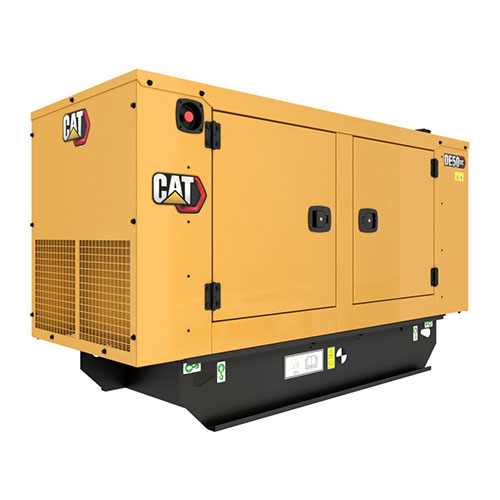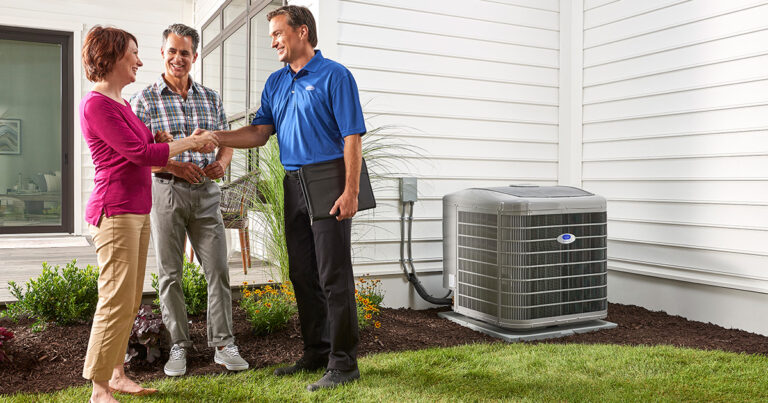
Electricity is the invisible thread that weaves through the fabric of modern life, powering everything from the smallest convenience to the most vital needs in our homes. Yet, this reliance on electrical power comes with its vulnerabilities, especially in the face of increasing weather unpredictability and aging infrastructure.
Power outages, once a rare inconvenience, have become a more frequent and challenging part of life, making backup home generators not just a luxury, but a necessity for many. This comprehensive exploration into the world of residential backup home generators aims to arm homeowners with the knowledge to make informed decisions about safeguarding their homes against power interruptions.
Understanding Backup Home Generators
The concept of a backup generator is simple: it is a device that provides power to your home when the main electrical grid fails. However, the technology and options available are anything but simple. Residential backup generators are broadly categorized into two types: standby and portable. Standby generators are a permanent fixture outside your home, wired directly into the electrical system to provide an automatic response to power outages.
They are typically powered by natural gas or propane and are capable of powering the entire home for days. This seamless transition ensures that, even in the event of a power outage, life inside the home can continue with minimal disruption. Portable generators, in contrast, offer a more flexible solution. As the name suggests, these generators can be moved and stored as needed, making them ideal for occasional use or for powering specific areas or appliances within the home.
They usually run on gasoline and require manual setup and operation, including running extension cords to the necessary appliances. The operation of backup generators revolves around the detection of power loss, typically through an automatic transfer switch for standby models, which then activates the generator. This swift response ensures that critical systems, such as heating, cooling, and refrigeration, continue to function, safeguarding both the comfort and safety of the occupants.
Benefits of Installing a Backup Generator at Home
- Protection of Home Appliances and Electronics: Power outages often lead to power surges upon reconnection, which can damage sensitive electronics. A backup generator maintains a stable power supply, protecting these devices.
- Home Safety and Comfort: For homes in regions susceptible to extreme weather, a backup generator ensures that heating and cooling systems remain operational, keeping the environment within safe and comfortable levels.
- Peace of Mind: Perhaps one of the most significant benefits is the peace of mind that comes from knowing your home is protected against the unpredictability of power outages, especially in areas where such occurrences are common due to natural disasters or infrastructure issues.
Choosing the Right Backup Generator for Your Home
Selecting the right backup generator is a decision that requires careful consideration of several factors. The size of the generator is paramount, as it needs to meet the power demands of your home. This calculation involves identifying the essential appliances and systems you wish to operate during an outage and their power requirements.
Fuel type is another critical consideration. Standby generators typically use natural gas or propane, which may require the installation of a fuel line if not already present. Portable generators, meanwhile, commonly run on gasoline, necessitating safe storage practices for the fuel.
The installation of a standby generator is not a DIY project; it requires professional installation by qualified technicians to ensure it complies with local building codes and safety regulations. This process includes securing the necessary permits, making it essential to work with a reputable company experienced in generator installation.
Installation and Maintenance
The installation of a backup generator is a complex process that involves electrical and gas plumbing skills, making it essential to enlist the services of professionals. Once installed, routine maintenance is crucial to ensure your generator remains in optimal working condition. This maintenance includes regular oil changes, battery checks, and ensuring the generator is run periodically to keep it ready for unexpected outages.
Cost Analysis and Return on Investment
The cost of purchasing and installing a backup generator can vary widely, depending on the size and type of generator chosen. While the upfront costs can be significant, the long-term benefits — from protecting your home and belongings during an outage to potentially increasing your home’s value — make it a worthwhile investment. Additionally, the convenience and safety provided by having a reliable power source during emergencies can be invaluable.
Conclusion
As we navigate an era where power outages are becoming a more common aspect of life, the importance of being prepared cannot be overstated. Residential backup generators offer a robust solution to this challenge, providing homeowners with a reliable power source that ensures safety, comfort, and peace of mind during unexpected power interruptions. By understanding the options available and making informed decisions, homeowners can significantly mitigate the inconveniences and potential dangers posed by power outages, making backup generators an essential component of modern home preparedness.
Write and Win: Participate in Creative writing Contest & International Essay Contest and win fabulous prizes.


